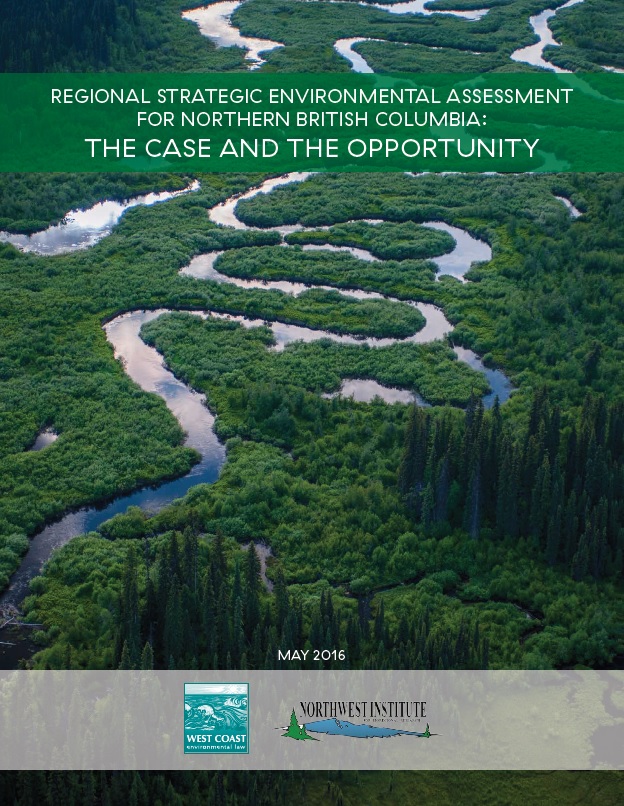 Residents of northern British Columbia are inundated with proposals for industrial development in the areas of liquefied natural gas, mining, forestry, oil and gas, and hydroelectric, and they are expected to respond to these myriad proposals on a project-by-project basis. Along with our colleagues from the Northwest Institute for Bioregional Research, West Coast Environmental Law travelled to communities across the north (Prince Rupert, Terrace, Kitimat, Hazelton, Fort St. John, and Chetwynd) to talk to residents about LNG proposals and cumulative effects.
Residents of northern British Columbia are inundated with proposals for industrial development in the areas of liquefied natural gas, mining, forestry, oil and gas, and hydroelectric, and they are expected to respond to these myriad proposals on a project-by-project basis. Along with our colleagues from the Northwest Institute for Bioregional Research, West Coast Environmental Law travelled to communities across the north (Prince Rupert, Terrace, Kitimat, Hazelton, Fort St. John, and Chetwynd) to talk to residents about LNG proposals and cumulative effects.
Overwhelmingly, we heard three messages:
- Residents are feeling alienated from meaningful input into environmental decision-making;
- There is a widespread lack of faith in the provincial and federal governments to adequately manage the cumulative effects of multiple developments;
- Residents are tired of a reactive environmental assessment process and instead want opportunities to participate in proactive environmental planning.
In our report Regional Strategic Environmental Assessment for Northern British Columbia: The Case and Opportunity we propose the use of RSEA as a tool to address these issues, in the context of a government-to-government relationship with Indigenous peoples. RSEA reverses the project-by-project approach to environmental assessment by providing residents the opportunity to imagine the future they want for their land and communities based on shared values, and then measuring individual projects against this vision. In this way, RSEA takes a proactive rather than reactive approach.
Indigenous and non-Indigenous residents of northern British Columbia are deeply invested in the future of their lands and communities. They deserve meaningful participation and influence in environmental decisions that affect their futures and are entitled to rely on frameworks that adequately manage cumulative effects.